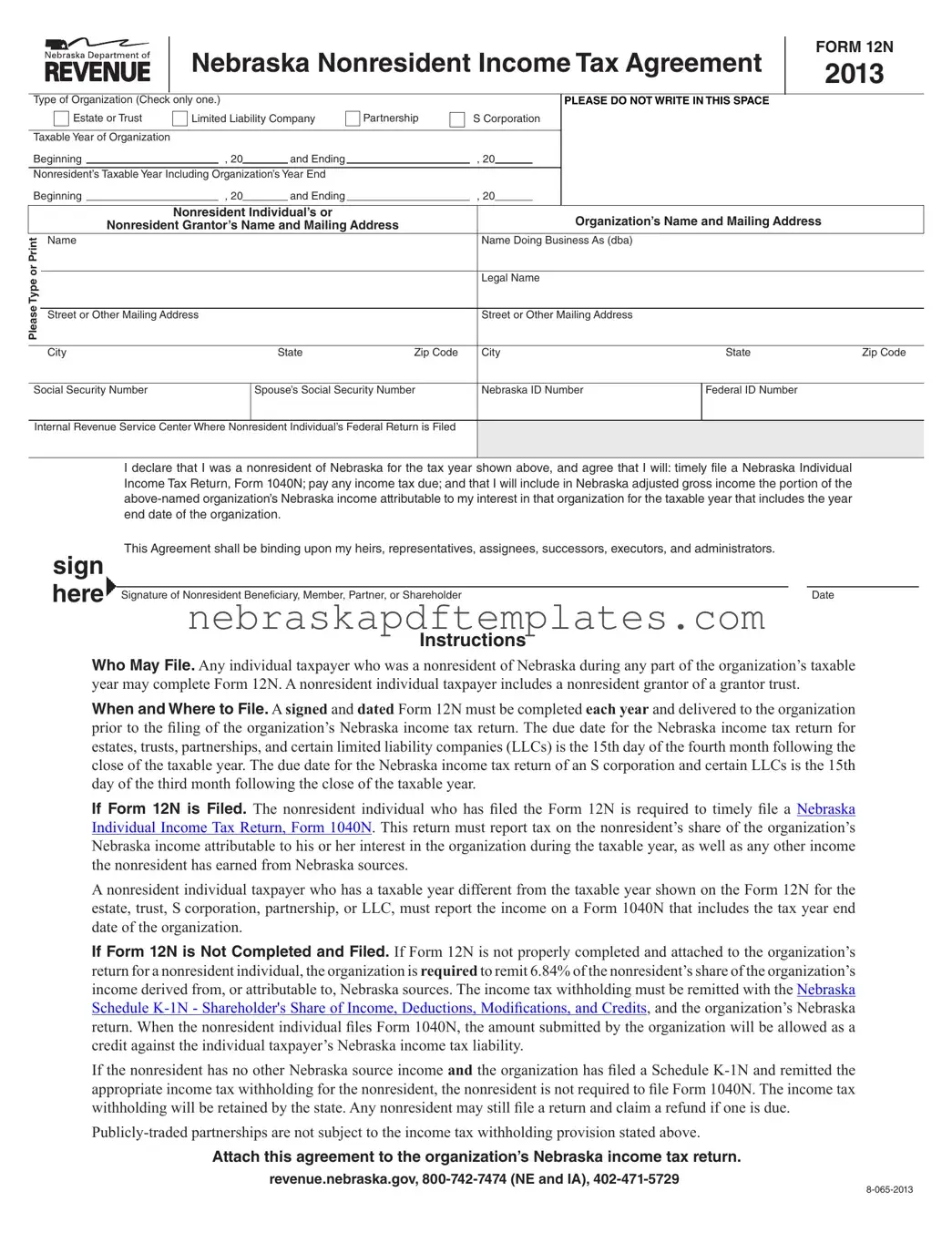Blank Nebraska 12N PDF Template
The Nebraska 12N form is a crucial document for nonresident individuals who have an interest in certain organizations operating in Nebraska. This form facilitates the reporting of income attributable to a nonresident's share in estates, trusts, partnerships, and S corporations. Completing the 12N ensures compliance with Nebraska tax obligations and helps avoid unnecessary penalties.
To begin the process of fulfilling your tax requirements, click the button below to fill out the Nebraska 12N form.
Access Editor Here

Blank Nebraska 12N PDF Template
Access Editor Here
Finish your form now
Finalize Nebraska 12N online — edit, save, and download effortlessly.
Access Editor Here
or
➤ Nebraska 12N
